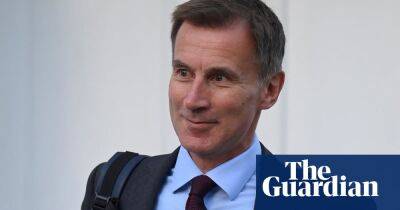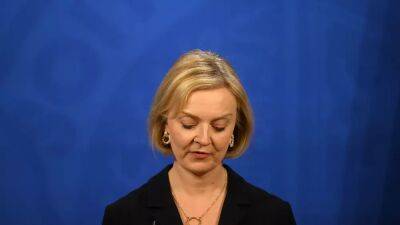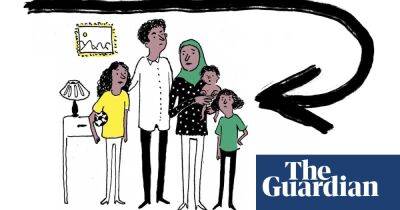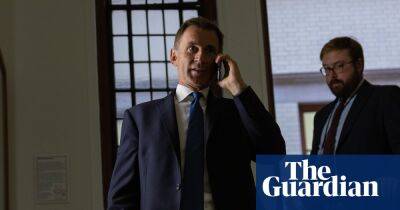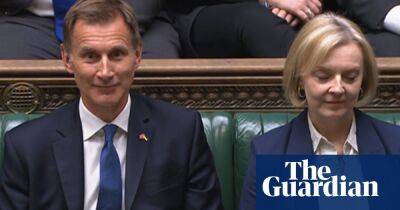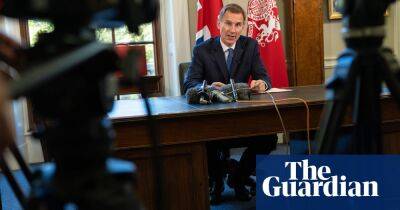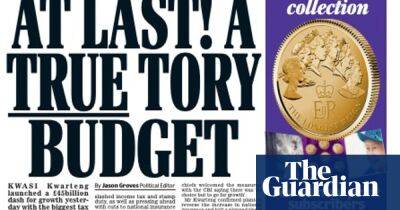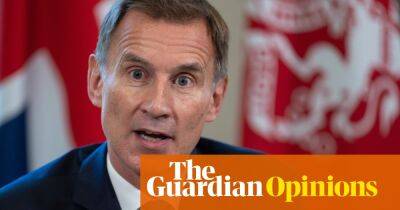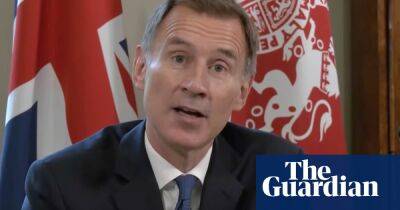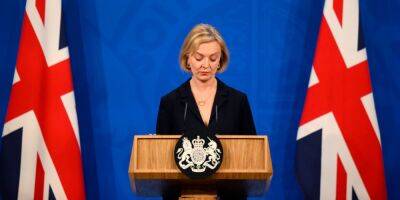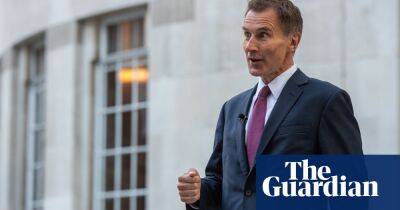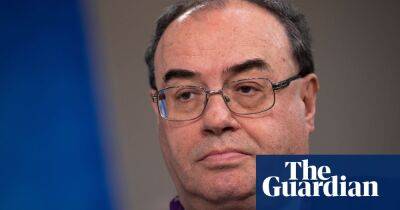Jeremy Hunt hints at tax rises as he reverses mini-budget in Commons
The new chancellor has hinted that tax rises could be on the way as he rolled back the vast majority of measures in the mini-budget and admitted decisions of “eye-watering difficulty” lay ahead.
Jeremy Hunt conceded that confidence and stability in the UK economy had been shaken over the past few weeks as he addressed MPs in his first Commons statement since replacing Kwasi Kwarteng on Friday.
Flanked by ashen-faced Tory backbenchers, Hunt admitted questions had been raised about whether the country could fund spending promises and pay its debts, and laid out plans to scrap tax cuts worth £32bn.
However, the sum is only half of the fiscal black hole – estimated to be about £70bn – caused by last month’s mini-budget, and Hunt alluded to needing to take “difficult decisions” to regain trust “in our national finances”.
“That means decisions of eye-watering difficulty,” he said. “Every single one of those decisions – whether reductions in spending or increases in tax – will be shaped through core, compassionate Conservative values that will prioritise the needs of the most vulnerable.”
Admitting the government was partly to blame for the markets’ shaky response to Kwarteng’s mini-budget, Hunt said some of the “short-term difficulties” were caused by the lack of a forecast by the Office for Budget Responsibility (OBR) being published alongside it.
Hunt said he had brought forward from 31 October the announcement about reversing tax cuts because “we need to do more, more quickly, to give certainty to the markets about our fiscal plans”.
Over the weekend, Hunt said he and the prime minister, Liz Truss, agreed to reverse “almost all the tax measures” unveiled in September.
As well as restoring the planned rise in corporation tax next
Read more on theguardian.com


